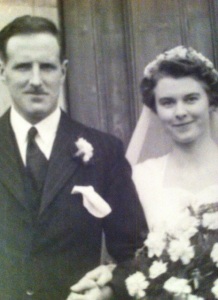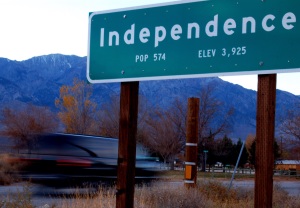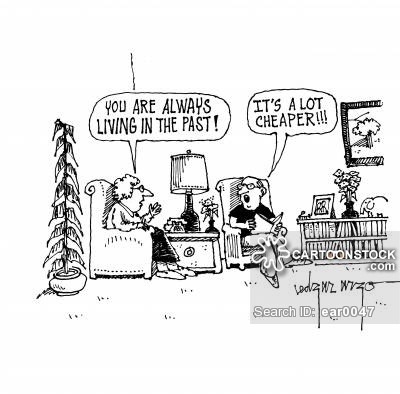Last week, the care home where Dad resides held its monthly relatives meeting. The first time I attended one of these, it was a joint relatives and residents meeting. I found it instructive listening to the residents’ points of view – albeit those who felt able to verbalise their thoughts. However, this approach has gone and residents and relatives meetings are now separated – I can see both pros and cons to this move.
 At the last relatives meeting, there were very few attendees and I was conscious of points being especially directed to me, as a vocal and regular visitor to the home. My main contribution was to bring up the issue of how relatives could be better informed of the care given to residents but I was conscious of a ‘good news’ approach to the meeting. As the fee increase, though not mentioned, came soon after this meeting, this might explain the upbeat tone.
At the last relatives meeting, there were very few attendees and I was conscious of points being especially directed to me, as a vocal and regular visitor to the home. My main contribution was to bring up the issue of how relatives could be better informed of the care given to residents but I was conscious of a ‘good news’ approach to the meeting. As the fee increase, though not mentioned, came soon after this meeting, this might explain the upbeat tone.
At the meeting last week, I resolved to sink into the background and listen more. However, since many of the items discussed had been brought up at previous meetings, I did point out that we needed to hear about what had been done to try and resolve these issues and to go over minutes of the previous meeting as a matter of course. I could see, again, that the manager was aiming for an informal atmosphere to the meeting but several of the issues brought up needed addressing with a more serious and, if you like, formal response.
In the event, most of the contributions from relatives at the meeting centred on the standard of care in the home and it was helpful for them to be aired. Issues such as staffing levels, accurate administration of medication and appropriate diet were usefully discussed and I was able to take a back seat and hear about things from other relatives’ perspectives.
As a relative of someone in a care home who is also writing about the experience, I’ve  been thinking about the parallels between caring and writing. It occurs to me that both of these can be done either about, for, or as another person. The difference is the distance involved between the person who is caring/ writing and the subject of the caring/writing. Let’s say you care about someone. That means that you take an active interest in someone else’s welfare – it matters to you. He or she is the subject of your concern or, if we apply this to writing, he or she is the subject of your essay, novel, poem or, indeed, blog.
been thinking about the parallels between caring and writing. It occurs to me that both of these can be done either about, for, or as another person. The difference is the distance involved between the person who is caring/ writing and the subject of the caring/writing. Let’s say you care about someone. That means that you take an active interest in someone else’s welfare – it matters to you. He or she is the subject of your concern or, if we apply this to writing, he or she is the subject of your essay, novel, poem or, indeed, blog.
Caring for someone else brings you closer to him or her. It matters more to the carer to be in tune with the person cared for – to get it right. If you try and write for someone, you have to petition on his or her behalf and focus on the issues and feelings which concern your subject.
Finally, caring or writing as someone else requires the greatest imaginative talent. It means walking in someone else’s shoes and trying to imagine living someone else’s life. I doubt the extent to which this is actually possible but imagination is a powerful tool.
 Distance is also the issue for a relative of a person in a care home. You have a connection to a ‘loved one’ that entails certain responsibility and implied fellow feeling but the distance you have (which may of course vary) is then changed further by a care home. I would say that being a close relative, such as a spouse, son or daughter of someone in a care home changes the relationship you have with your husband, wife, mother or father into that of an advocate and that it would be useful if care homes embraced that more openly.
Distance is also the issue for a relative of a person in a care home. You have a connection to a ‘loved one’ that entails certain responsibility and implied fellow feeling but the distance you have (which may of course vary) is then changed further by a care home. I would say that being a close relative, such as a spouse, son or daughter of someone in a care home changes the relationship you have with your husband, wife, mother or father into that of an advocate and that it would be useful if care homes embraced that more openly.
The shape and size of advocacy is something I have been trying to get a feel for since Dad entered the care home. Staffing ratios mean that a highly individualised concern and knowledge of someone’s character may be unrealistic to expect. On the other hand, carers need to know how and when to prioritise an individual’s needs as urgent. As a relative, I have on occasion drawn attention to Dad’s situation when I think something important or significant may have been overlooked which could head off a crisis but, unless you have a persistent relative like me who visits frequently, this is unlikely to happen.
This worries me – reacting to a crisis is not a good way to exercise care about, for or as someone. Crises need to be headed off, if possible (and I accept this may not always be), and plans put in place to create different possibilities. When I wrote about activities, it was to suggest that imaginative activities are opportunities for different experiences. Being an advocate, it seems to me that people in a care home need the level of interaction and reassurance which such activities can offer.
Which brings me back to writing. As a form of communication, this blog aims to reach out to both relatives of Dad and relatives of other elderly people and, by covering relevant issues and stories, to show care about, for and as him. Being a relative of someone in a care home is contradictory at times. It feels like desertion. Maybe that’s what this writing is trying to say.
Images
Featured image: Relativity by M.C.Escher. Available at mcescher.com. 1st image: By Cartoon Stock. Available at cartoonstock.com. 2nd image: typewriter by Matt Hanses. Available at bymatthanses.com. 3rd image: Chinese character by Alex Wu, The Epoch Times June 2 2014. Available at: theepochtimes.com – worth looking at for an interesting explanation of the evolution of this Chinese character for relative which originated from the meaning to visit an incarcerated one.



 At the last relatives meeting, there were very few attendees and I was conscious of points being especially directed to me, as a vocal and regular visitor to the home. My main contribution was to bring up the issue of how relatives could be better informed of the care given to residents but I was conscious of a ‘good news’ approach to the meeting. As the fee increase, though not mentioned, came soon after this meeting, this might explain the upbeat tone.
At the last relatives meeting, there were very few attendees and I was conscious of points being especially directed to me, as a vocal and regular visitor to the home. My main contribution was to bring up the issue of how relatives could be better informed of the care given to residents but I was conscious of a ‘good news’ approach to the meeting. As the fee increase, though not mentioned, came soon after this meeting, this might explain the upbeat tone. been thinking about the parallels between caring and writing. It occurs to me that both of these can be done either about, for, or as another person. The difference is the distance involved between the person who is caring/ writing and the subject of the caring/writing. Let’s say you care about someone. That means that you take an active interest in someone else’s welfare – it matters to you. He or she is the subject of your concern or, if we apply this to writing, he or she is the subject of your essay, novel, poem or, indeed, blog.
been thinking about the parallels between caring and writing. It occurs to me that both of these can be done either about, for, or as another person. The difference is the distance involved between the person who is caring/ writing and the subject of the caring/writing. Let’s say you care about someone. That means that you take an active interest in someone else’s welfare – it matters to you. He or she is the subject of your concern or, if we apply this to writing, he or she is the subject of your essay, novel, poem or, indeed, blog. Distance is also the issue for a relative of a person in a care home. You have a connection to a ‘loved one’ that entails certain responsibility and implied fellow feeling but the distance you have (which may of course vary) is then changed further by a care home. I would say that being a close relative, such as a spouse, son or daughter of someone in a care home changes the relationship you have with your husband, wife, mother or father into that of an advocate and that it would be useful if care homes embraced that more openly.
Distance is also the issue for a relative of a person in a care home. You have a connection to a ‘loved one’ that entails certain responsibility and implied fellow feeling but the distance you have (which may of course vary) is then changed further by a care home. I would say that being a close relative, such as a spouse, son or daughter of someone in a care home changes the relationship you have with your husband, wife, mother or father into that of an advocate and that it would be useful if care homes embraced that more openly.
 Some of the men at the timber firm where Dad returned back to had joined the army so it inevitably meant more responsibility for him. However, what I didn’t realise was that the government ran the timber trade with the assistance of people in the trade because it was a rationed commodity and everything to do with foreign exchange was controlled by the government until it was decontrolled after the war. Dad recalled the timber controller for the Ministry of Supply 1939 to 1947 as a Major Archibald Isidore Harris who was later knighted for his work after the war.
Some of the men at the timber firm where Dad returned back to had joined the army so it inevitably meant more responsibility for him. However, what I didn’t realise was that the government ran the timber trade with the assistance of people in the trade because it was a rationed commodity and everything to do with foreign exchange was controlled by the government until it was decontrolled after the war. Dad recalled the timber controller for the Ministry of Supply 1939 to 1947 as a Major Archibald Isidore Harris who was later knighted for his work after the war. Dad, however remained at a boarding house in the Bromley area. This made it easier to get to work on the frequently disrupted train service. He has described the risk of staying in London and the bombs that fell on Bromley, one only a couple of hundred yards from where he was staying. The house where Dad found lodgings was owned by a Joy Laumann, a significant name to me as she was later chosen to be one of my (several) Godparents. From the photo of my christening in the late 1950’s, I can see her emanating a scent of glamour and sporting a fur stole round her shoulders. She must have been a stylish landlady.
Dad, however remained at a boarding house in the Bromley area. This made it easier to get to work on the frequently disrupted train service. He has described the risk of staying in London and the bombs that fell on Bromley, one only a couple of hundred yards from where he was staying. The house where Dad found lodgings was owned by a Joy Laumann, a significant name to me as she was later chosen to be one of my (several) Godparents. From the photo of my christening in the late 1950’s, I can see her emanating a scent of glamour and sporting a fur stole round her shoulders. She must have been a stylish landlady.

 Trappists, properly known as Cistercians of the Strict Observance, like other orders of monks and nuns, renounce their wordly possessions and, according to the 48th chapter of the rule of St Benedict, ‘live by the work of the hands’. They have been characterised as particularly holy, even in comparison to other orders, because of the emphasis on solitude. Interestingly, though, they are famous for making beer and do not renounce alcoholic consumption.
Trappists, properly known as Cistercians of the Strict Observance, like other orders of monks and nuns, renounce their wordly possessions and, according to the 48th chapter of the rule of St Benedict, ‘live by the work of the hands’. They have been characterised as particularly holy, even in comparison to other orders, because of the emphasis on solitude. Interestingly, though, they are famous for making beer and do not renounce alcoholic consumption. The name ‘Catenians’ comes from the Latin for chain. The organisation promotes links and brotherhood between Catholic men with the aim of supporting family life and the wider Catholic community, including various charities. It was formed in 1908 in Manchester by the then Bishop of Salford, at a time when Catholics were experiencing discrimination and needed to support each other to keep their values active. Now, it is a global organisation that meets in local circles both in the UK and Ireland as well as in countries as far away as Hong Kong, Australia and Malta.
The name ‘Catenians’ comes from the Latin for chain. The organisation promotes links and brotherhood between Catholic men with the aim of supporting family life and the wider Catholic community, including various charities. It was formed in 1908 in Manchester by the then Bishop of Salford, at a time when Catholics were experiencing discrimination and needed to support each other to keep their values active. Now, it is a global organisation that meets in local circles both in the UK and Ireland as well as in countries as far away as Hong Kong, Australia and Malta. The special reason for this visit was to make a presentation to Dad to mark the fact that he has been a member of the Catenians for 60 years. I guess that means that he joined the organisation in 1956 when my parents would have been living in Burgess Hill in West Sussex – the place, also, where I was born. I’m not sure how he came to join but I think it was via a friend at the time.
The special reason for this visit was to make a presentation to Dad to mark the fact that he has been a member of the Catenians for 60 years. I guess that means that he joined the organisation in 1956 when my parents would have been living in Burgess Hill in West Sussex – the place, also, where I was born. I’m not sure how he came to join but I think it was via a friend at the time. So, on 4th January, four Catenian friends made the journey up the M1 to mark this 60th anniversary. Fortunately, I was able to use one of the small lounges for the occasion and to provide some refreshments to welcome Mal, Tony, Margaret and Gordon. This kind of continuity with a former life and friends is hard to achieve, when an elderly person moves to live near a close relative so I am very grateful to these people for making this connection still possible, despite around 300 mile round trip.
So, on 4th January, four Catenian friends made the journey up the M1 to mark this 60th anniversary. Fortunately, I was able to use one of the small lounges for the occasion and to provide some refreshments to welcome Mal, Tony, Margaret and Gordon. This kind of continuity with a former life and friends is hard to achieve, when an elderly person moves to live near a close relative so I am very grateful to these people for making this connection still possible, despite around 300 mile round trip. However, the congregation have been very welcoming to Dad (for example by inviting him to the party discussed in
However, the congregation have been very welcoming to Dad (for example by inviting him to the party discussed in 
 Admirable though this is in some ways, there are downfalls with what we might call an over-independent approach to life. It can breed a conservative and risk-averse frame of mind and also nurture an insular or socially unaware proclivity. For Dad, I would say that his independent persona has also made him more physically active and less talkative than many people – or vice-versa. Critically, it has also meant that the dependence that comes with great old age is doubly hard to adapt to.
Admirable though this is in some ways, there are downfalls with what we might call an over-independent approach to life. It can breed a conservative and risk-averse frame of mind and also nurture an insular or socially unaware proclivity. For Dad, I would say that his independent persona has also made him more physically active and less talkative than many people – or vice-versa. Critically, it has also meant that the dependence that comes with great old age is doubly hard to adapt to. care homes. Sometimes talk of independence is actually a cover for poor care – at its worst, a type of neglect. It seems to me that you can only exercise independence if you have the right conditions to do so and these are not easy to achieve in a care home.
care homes. Sometimes talk of independence is actually a cover for poor care – at its worst, a type of neglect. It seems to me that you can only exercise independence if you have the right conditions to do so and these are not easy to achieve in a care home. I realise that this is beginning to sound like a parlour game – something like 20 questions – but in reality it creates a huge amount of frustration on both sides. Mostly, as the scope of his world shrinks further, I can anticipate what Dad might mean – I’ve heard it before and repetition is a reliable guide. However for the large group of ever-changing carers, this type of individualised interpretation is quite a lot to expect.
I realise that this is beginning to sound like a parlour game – something like 20 questions – but in reality it creates a huge amount of frustration on both sides. Mostly, as the scope of his world shrinks further, I can anticipate what Dad might mean – I’ve heard it before and repetition is a reliable guide. However for the large group of ever-changing carers, this type of individualised interpretation is quite a lot to expect. is a word we like to use in debates about democracy and participation – it means having influence on what happens to us and affecting our environments. It is broader than the concept of independence and linked to the world around us. Dad desires agency but sees only that he is losing control. There’s a lot of people trying to help him but that’s not the same – if help means dependence it’s a tricky condition, as far as he is concerned.
is a word we like to use in debates about democracy and participation – it means having influence on what happens to us and affecting our environments. It is broader than the concept of independence and linked to the world around us. Dad desires agency but sees only that he is losing control. There’s a lot of people trying to help him but that’s not the same – if help means dependence it’s a tricky condition, as far as he is concerned.



 In one of the photos Dad took, the Nazi Swastika is visible in the background of the local town which Dad visited. This was, as we now know in hindsight, a chilling sign of things to come – Dad was just 19 or 20 on this second visit.
In one of the photos Dad took, the Nazi Swastika is visible in the background of the local town which Dad visited. This was, as we now know in hindsight, a chilling sign of things to come – Dad was just 19 or 20 on this second visit.

